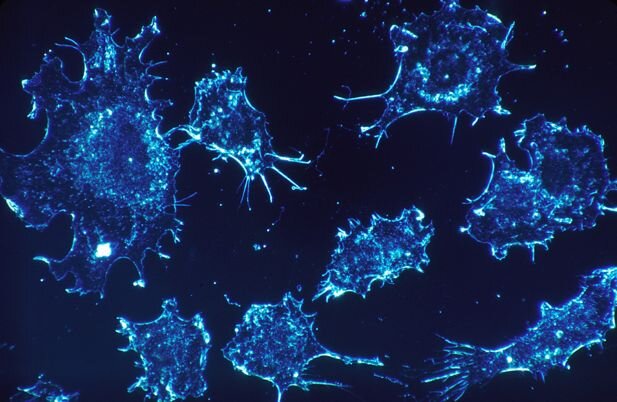A new study from the University of Birmingham has found that 50% of patients with a rare type of cancer that has spread into the lining of their abdomen may be suitable for immunotherapy treatment.
Unfortunately for around 1% of bowel cancer patients, their cancer spreads to the lining of their abdomen (peritoneal cavity) – known as colorectal peritoneal metastasis (CPM).
This type of spread in bowel cancer patients carries a very poor prognosis and so most patients do not survive beyond 12 months from diagnosis.
Patients with CPM have a limited survival rate with the best available treatments.
Conventional chemotherapy is ineffective, and current treatment consists of extensive surgery which does not always work.
This first of its kind study funded by Good Hope Hospital Charity, found that understanding the tumor biology may identify which patients with bowel cancer are at risk of developing CPM.
Results published in Scientific Reports show that by identifying the specific tumor biology of this groups of patients, they carry a specific mutation that makes them sensitive to immunotherapy.
Lead author, Professor Andrew Beggs from the University of Birmingham’s Institute of Cancer and Genomic Sciences, said: “We have found that approximately 50% of patients with CPM have a type of genetic change, called hypermutation. This means they may be sensitive to immunotherapy as this type of treatment has good results in other patient groups with hypermutations.
“We also found potential sensitivity to a drug called a Porcupine inhibitor, based on another genetic marker identified in these patients.
“This is the first study of its kind in the world for patients with CPM, and our results have shown this could provide a potentially curative option for patients given the responses we have seen to immunotherapy in other cancers.”
Researchers will now look to set up an international clinical trial to examine the use of immunotherapy for patients with CPM.
New bowel cancer model uncovering how it avoids immunotherapy drug
More information:
Sally Hallam et al. The transition from primary colorectal cancer to isolated peritoneal malignancy is associated with an increased tumour mutational burden, Scientific Reports (2020). DOI: 10.1038/s41598-020-75844-6
Provided by
University of Birmingham
Citation:
New study into a rare type of cancer in abdomen lining shows possible immunotherapy treatment (2020, November 3)
retrieved 4 November 2020
from https://medicalxpress.com/news/2020-11-rare-cancer-abdomen-lining-immunotherapy.html
This document is subject to copyright. Apart from any fair dealing for the purpose of private study or research, no
part may be reproduced without the written permission. The content is provided for information purposes only.



